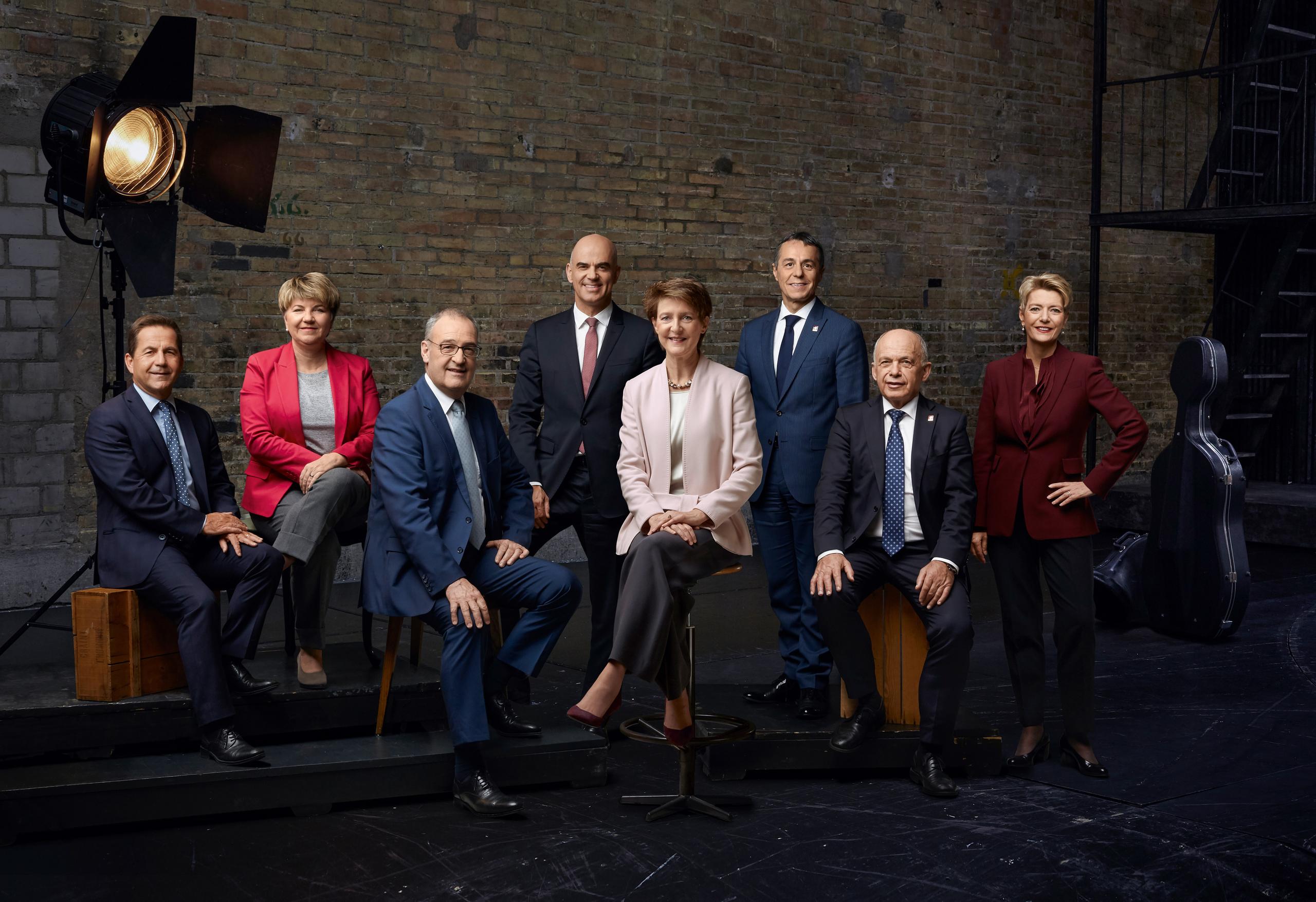
What does the Swiss chancellor actually do?

“Are there now eight members in the Swiss government?” is what readers from abroad ask us every year when the new photo of the Federal Council, Switzerland’s seven-person government, appears.
No. Nothing’s changed. The government still has seven members. The eighth figure, who almost always stands on the left or the right, is not photobombing the shot: it’s the federal chancellor.
Unlike in Germany or Austria, federal chancellors in SwitzerlandExternal link are not the most powerful political figure in the country. Although they are less visible to the public than the seven government ministersExternal link, they do have political influence. The extent of this influence depends on the individual and also on the respective members of government.
In the past, some of the chancellors were referred to as the eighth minister. Corina Casanova (2008-2015) saw her role more as that of a discreet civil servant. Even the incumbent chancellor, Walter ThurnherrExternal link, prefers to call himself the “most senior civil servant” rather than the eighth minister.
No one has yet succeeded in making the move from the chancellery to government, although Thurnherr was said to have had good chances at the end of 2018 before parliament ended up choosing Viola Amherd.
The chancellor is elected by the Federal Assembly (both chambers of parliament). So far only two of the 17 chancellors have been women. The first, Annemarie Huber-Hotz, held office from 2000 to 2007.
Tasks and responsibilities
Federal chancellors existed many years before the first cabinet minister; it is the oldest Swiss institution still in existence. As early as 1803 the Federal Diet appointed a Confederate Chancellor, who became Federal Chancellor with the foundation of the federal state in 1848.
Most chancellors have been recruited from parliament and have belonged to a government party. Only the rightwing Swiss People’s Party has never had a chancellor.
The federal chancellor heads the Federal ChancelleryExternal link, which plans and coordinates government business. Chancellors also take part in the weekly government meetings, where they have an advisory role. As the government’s chief of staff, they can mediate, coordinate, co-author reports, make proposals and even submit motions. Voting, however, is not possible.
The chancellor’s area of responsibility also oversees communication for the federal government as well as federal initiatives and referendums, and elections in the House of Representatives.
In return, he or she receives a salary equivalent to 80% of a government minister’s salaryExternal link, i.e. around CHF360,000 ($368,000).

More
Switzerland’s 21 living ex-presidents: a world record
(Translated from German by Thomas Stephens)

In compliance with the JTI standards
More: SWI swissinfo.ch certified by the Journalism Trust Initiative































You can find an overview of ongoing debates with our journalists here . Please join us!
If you want to start a conversation about a topic raised in this article or want to report factual errors, email us at english@swissinfo.ch.